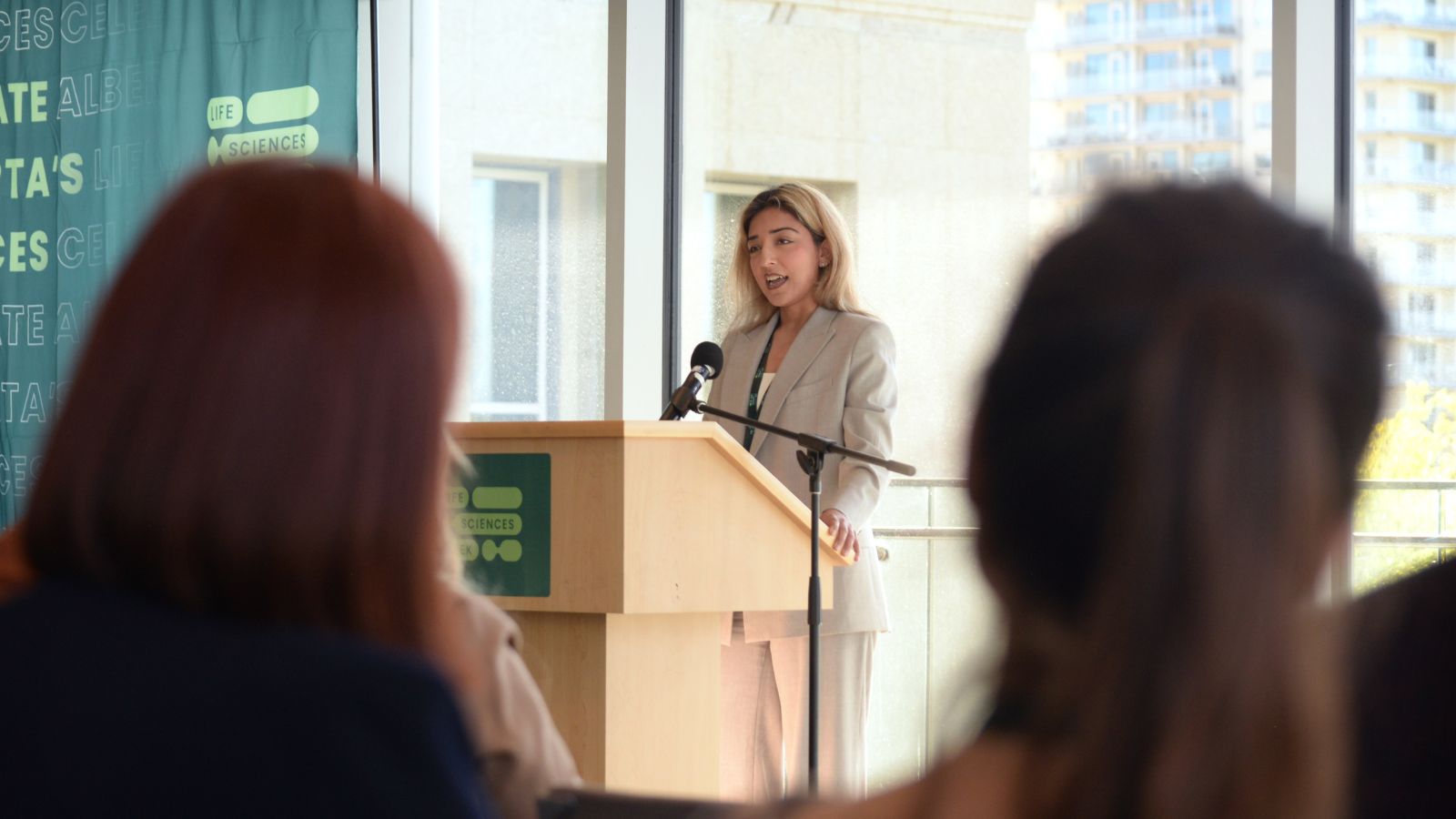Science
Canada Launches 1,000 Paid Internships to Boost Life Sciences

The Canadian life sciences sector is set to benefit from a new initiative aimed at bridging the gap between research and industry. The launch of the Life Sciences Placement Program (LSPP) will create 1,000 paid internships across the country, addressing the urgent need for skilled professionals in a rapidly expanding field. This announcement was made during the kickoff of Life Sciences Week in Edmonton, where industry leaders gathered to discuss the future of life sciences in Canada.
Dr. Tamana Yousof, a postdoctoral fellow at the University of Alberta, highlighted the challenge facing many graduates. As research progresses, too many students and postdoctoral fellows find themselves without clear pathways into companies that require their expertise. “This disconnect is holding back commercialization,” Dr. Yousof stated, underscoring the need for initiatives like the LSPP.
The LSPP, developed by Applied Pharmaceutical Innovation (API) in partnership with Mitacs, aims to facilitate the transition of talent from academic laboratories to industry roles. The program offers funding and customized training, ensuring that participants acquire practical, industry-ready skills. The placements encompass various aspects of the life sciences sector, from early-stage research to commercial manufacturing.
Accelerating Talent Movement
One of the primary goals of the LSPP is to streamline the hiring process. API has notably reduced approval timelines from four months to as little as three weeks. This expedited process allows companies to secure the right talent when needed, eliminating bureaucratic delays that can hinder project timelines.
Dr. Yousof expressed optimism about the program’s potential impact, stating that Alberta is not only producing high-quality research but is also fostering an environment where scientists can develop entrepreneurial skills and industry connections from an early stage in their careers.
Andrew MacIsaac, CEO of API, described the program as arriving at a critical moment for Canada’s life sciences sector. He noted that the province of Alberta is well-positioned to drive innovation forward. “We’re thrilled to be able to announce this very impactful program at this key juncture,” he remarked, highlighting the activity during Life Sciences Week as indicative of Alberta’s evolving ecosystem.
Mitacs CEO Stephen Lucas emphasized the national scope of the initiative, stating that the partnership aims to connect “top-tier talent to industry, contributing to reduced costs to commercialization, accelerated growth, and a stronger workforce pipeline.”
Showcasing Alberta’s Potential
The launch of the LSPP set a dynamic tone for Life Sciences Week, which boasted over 60 events and drew more than 5,000 registrations in Edmonton and Calgary. The programming featured facility tours, investment sessions, and discussions on topics ranging from rural health delivery to commercialization pathways.
Participants and attendees noted that the LSPP reflects a maturing ecosystem in Alberta, where industry and academia increasingly align. Dr. Yousof captured the essence of the initiative when she stated, “This is a model designed not just to support individuals entering the workforce, but to strengthen competitive advantage, leveraging Canada’s world-class post-secondary institutions for economic growth.”
The Life Sciences Placement Program represents a significant step towards addressing the talent gap in Canada’s life sciences sector, ensuring that innovations can move swiftly from research labs to market. As the program unfolds, it promises to enhance the province’s reputation as a hub for life sciences innovation and entrepreneurship.
-

 Lifestyle3 weeks ago
Lifestyle3 weeks agoWinnipeg Celebrates Culinary Creativity During Le Burger Week 2025
-

 Health1 month ago
Health1 month agoMontreal’s Groupe Marcelle Leads Canadian Cosmetic Industry Growth
-

 Science1 month ago
Science1 month agoMicrosoft Confirms U.S. Law Overrules Canadian Data Sovereignty
-

 Education1 month ago
Education1 month agoRed River College Launches New Programs to Address Industry Needs
-

 Technology1 month ago
Technology1 month agoDragon Ball: Sparking! Zero Launching on Switch and Switch 2 This November
-

 Science1 month ago
Science1 month agoTech Innovator Amandipp Singh Transforms Hiring for Disabled
-

 Technology1 month ago
Technology1 month agoGoogle Pixel 10 Pro Fold Specs Unveiled Ahead of Launch
-

 Science1 month ago
Science1 month agoChina’s Wukong Spacesuit Sets New Standard for AI in Space
-

 Technology1 month ago
Technology1 month agoWorld of Warcraft Players Buzz Over 19-Quest Bee Challenge
-

 Science1 month ago
Science1 month agoXi Labs Innovates with New AI Operating System Set for 2025 Launch
-

 Business1 month ago
Business1 month agoNew Estimates Reveal ChatGPT-5 Energy Use Could Soar
-

 Business1 month ago
Business1 month agoDawson City Residents Rally Around Buy Canadian Movement
-

 Technology1 month ago
Technology1 month agoFuture Entertainment Launches DDoD with Gameplay Trailer Showcase
-

 Technology1 month ago
Technology1 month agoGlobal Launch of Ragnarok M: Classic Set for September 3, 2025
-

 Technology1 month ago
Technology1 month agoInnovative 140W GaN Travel Adapter Combines Power and Convenience
-

 Technology1 month ago
Technology1 month agoNew IDR01 Smart Ring Offers Advanced Sports Tracking for $169
-

 Technology1 month ago
Technology1 month agoHumanoid Robots Compete in Hilarious Debut Games in Beijing
-

 Science1 month ago
Science1 month agoNew Precision Approach to Treating Depression Tailors Care to Patients
-

 Health1 month ago
Health1 month agoGiant Boba and Unique Treats Take Center Stage at Ottawa’s Newest Bubble Tea Shop
-

 Technology1 month ago
Technology1 month agoArsanesia Unveils Smith’s Chronicles with Steam Page and Trailer
-

 Technology1 month ago
Technology1 month agoQuoted Tech Launches Back-to-School Discounts on PCs
-

 Education1 month ago
Education1 month agoAlberta Teachers’ Strike: Potential Impacts on Students and Families
-

 Technology1 month ago
Technology1 month agoDiscover the Relaxing Charm of Tiny Bookshop: A Cozy Gaming Escape
-

 Technology1 month ago
Technology1 month agoRaspberry Pi Unveils $40 Touchscreen for Innovative Projects










